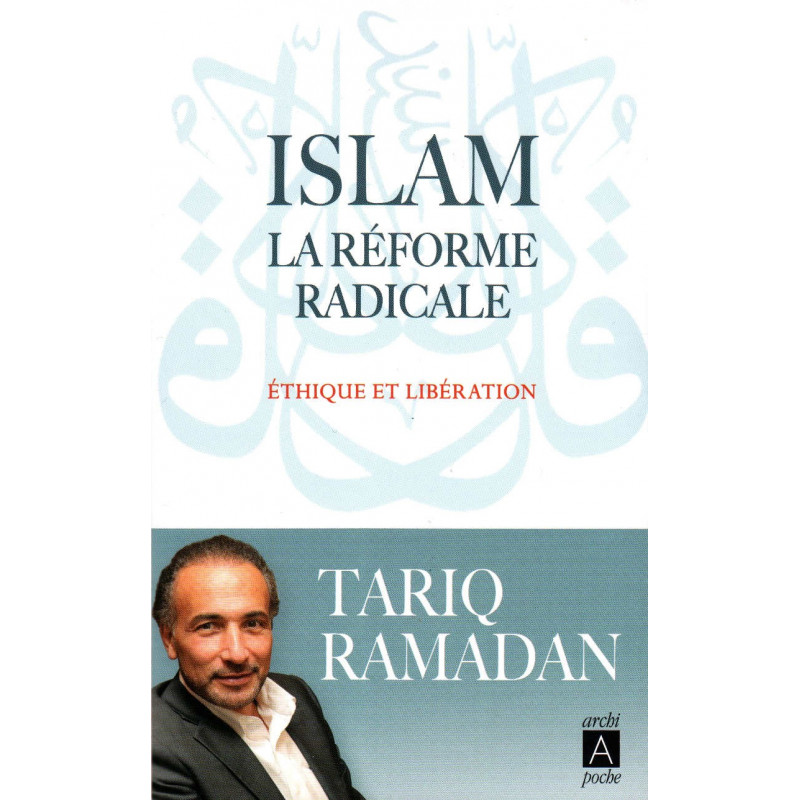

Promotions SANA: Jusqu’à -20%, Cliquez ici
Promotions SANA: Jusqu’à -20%, Cliquez ici
Plea for an intellectual revolution, this book proposes a new methodology of the sources of law and jurisprudence. Not to submit to social and scientific developments, but to make an ethical and daring contribution to human progress. This concrete introduction to Tariq Ramadan's critical thinking has sparked research and debate around the world.
Islam: The Radical Reform - Ethics and Liberation, by Tariq Ramadan, Archipoche Editions
In the East as in the West, Muslims need fiqh (law and jurisprudence) . They wonder how to reconcile modern life and faith, which has become secondary in secularized societies. But how to distinguish, in the texts, what is immutable from what is likely to change?
Questioning the nature of the crises and blockages that paralyze Muslim thought, Tariq Ramadan raises the question of the renewal of Islamic sciences. Why did the audacious and creative spirit of the origins give way to the prudence of a thought that considers reform only in terms of adaptation to the world, abandoning any desire for positive transformation? How can we explain the deep gap that has appeared between Islamic sciences and other disciplines, which prevents us from responding as we should to the challenges of the century?
A plea for an intellectual revolution, this book proposes a new methodology of the sources of law and jurisprudence ( usûl al-fiqh ) . Not to submit to social and scientific developments, but to make an ethical and daring contribution to human progress. Already translated into ten languages - including Arabic - this concrete introduction to Tariq Ramadan's critical thought has sparked research and debate throughout the world.
Data sheet
Specific References
No customer reviews for the moment.